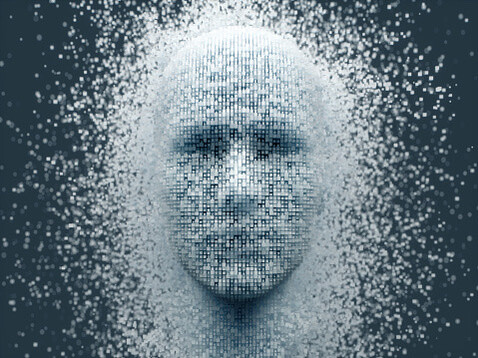Artificial Intelligence and Man

The title of an Opinion/Commentary on 2 November in The Wall Street Journal caught my attention, "The Challenge of Being Human in the age of AI," authored by Henry Kissinger, Eric Schmidt and Daniel Huttenlocher. Kissinger was U.S. Secretary of State,1973-1977, Schmidt was CEO of Google, 2001-2011, Huttenlocher is dean of the Schwartzman College of Computing at the Massachusetts Institute of Technology. They are authors of, "The Age of AI: And Our Human Future."
Besides the obvious privacy concerns and the "garbage in, garbage out" worries, the authors are making a case for AI challenging the primacy of human reason. Historically, man has sought to understand reality and our place in it. The authors site the last 300 years following the Enlightenment as the Age of Reason, or to put it another way science rules. Now through human ingenuity we have ushered in the Age of AI. They claim AI is obviating human reason by being able to investigate and perceive aspects of the world faster than we are able to and in some cases in ways we don't fully understand.
The authors site three examples in their article, Google DeepMind created a program called AlphaZero that looked at the game of chess anew and developed a not quite human strategy. Grandmaster Garry Kasparov described it as shaking the game "to its roots." In 2020 MIT researchers instructed their computer to go through millions of iterations of compounds the goal being to discover new ways of killing bacteria. They came up with a compound they named Halicin. This compound would have been prohibitively expensive to develop through traditional means and took only days verses years to discover. Lastly GPT-3, a language model that consumes internet text, and spits out original text that meets Alan Turing's standard of displaying "intelligent" behavior indistinguishable from that of a human being.
While each of these achievements are remarkable in their own way, let's take a step back and look at the big picture here and what the authors are getting at. Do these advances in AI and computing point to the human being having to redefine our role in the world? The article strongly hints that such a "reboot" of what it means to be human is on its way. Chillingly they remind us that for the last 300 years we have been guided by Descartes philosophical maxim, "I think therefore I am" to the future of, "if AI 'thinks,' what am I?"
How should we as Christians think about this? First off, man has been "made in the image and likeness of God." Computers are tools conceived and built by man with our God given minds and abilities. They are lifeless, they do not have a soul nor can they know or worship the living God, only man can and does. The last 300 years the authors call the Age of Reason glosses over the fact that Enlightenment philosophy was a man centered philosophy that leaves out the metaphysical all together and is therefore a Godless and atheistic worldview, not worthy of our admiration. Likewise, the "New Age of AI" will be more of the same: input sinful man creates sinful man output. We as Christians are not anti-science we are all about discovering truths and and using our God given minds to do so. Where we differ is how we use these discoveries. Do we glorify man or God with them? The article raises the possibility of programming morality into the AI but fails to mention whose moral compass would be used. I can imagine that all the world's religions and philosophies would be mixed in to make a sausage like "RoboReligion," and some would come to worship the omniscient RoboGod. I get it that it is quite clever to program a computer to beat me at chess, I fall for the "Queen's Gambit" every time. The antibiotic MIT's computer discovered was named after the murderous Hal, a computer from the futuristic movie, 2001 a Space Odyssey and by the way the antibiotic has very little clinical usefulness. The fact that a computer can digest the internet and compose human like essays is interesting but, could it compose poetry like Shakespeare, Shelley, Keats or Dickinson? No I think not, because computers have no emotions or a soul to draw from. Computers are great analytical tools and when used as such are awesome in their performance, but to think that we can program humanity into a lifeless box of electronic components is a fool's errand.
Christian's need to be very wary and stay informed about scientific developments and be involved in the ethical and philosophical questions new scientific discoveries and technology present to our daily lives. Without strong leadership and influence in these matters by Christians, we will suffer from the consequences of the secular mind and worldview.


